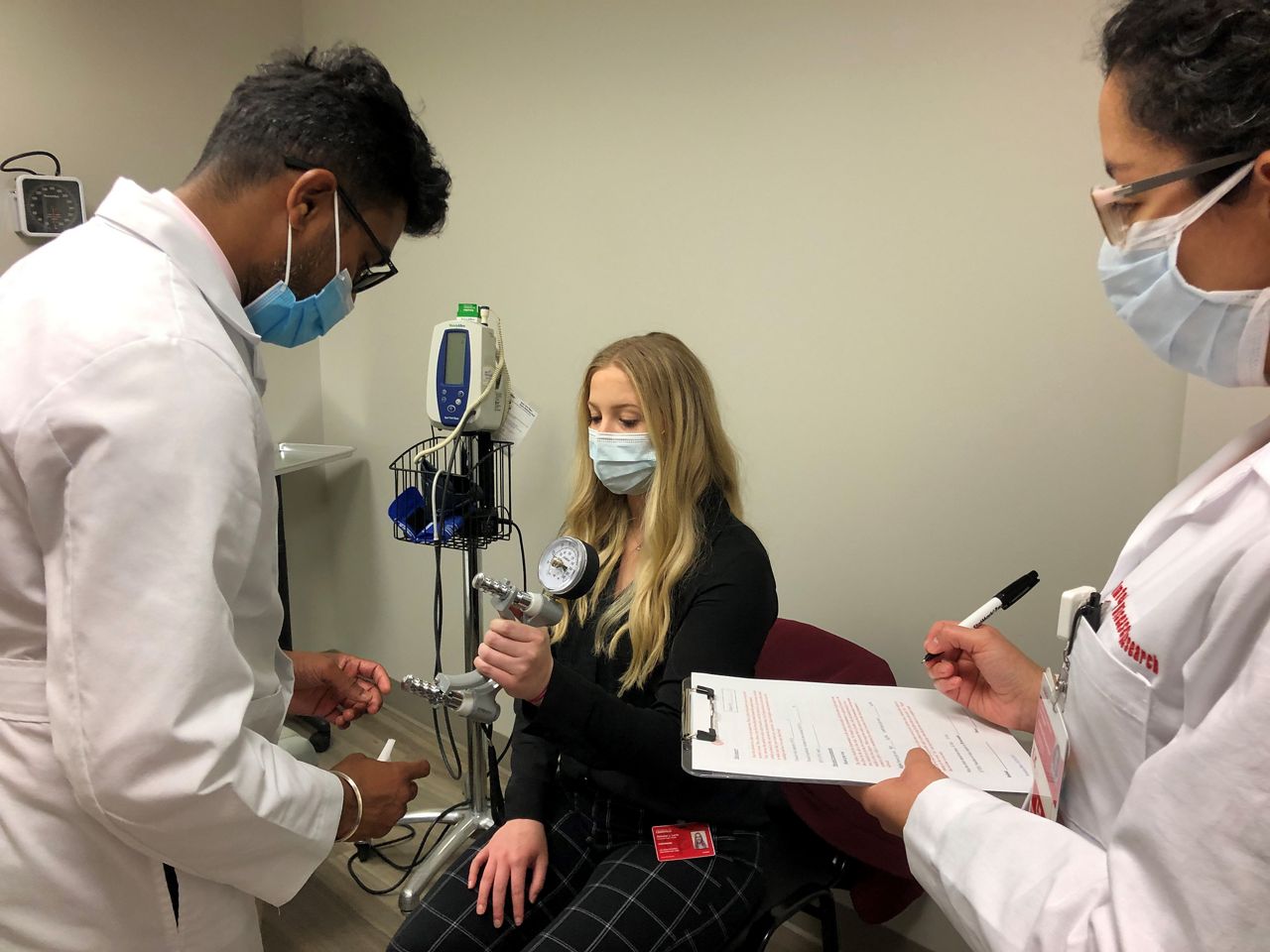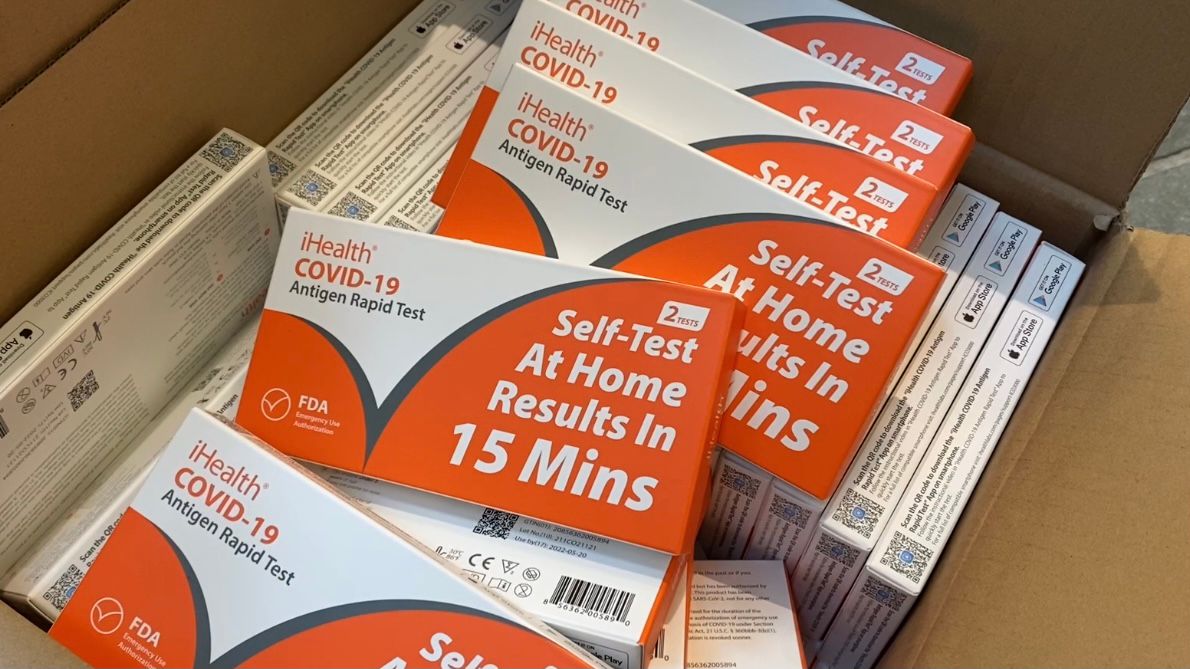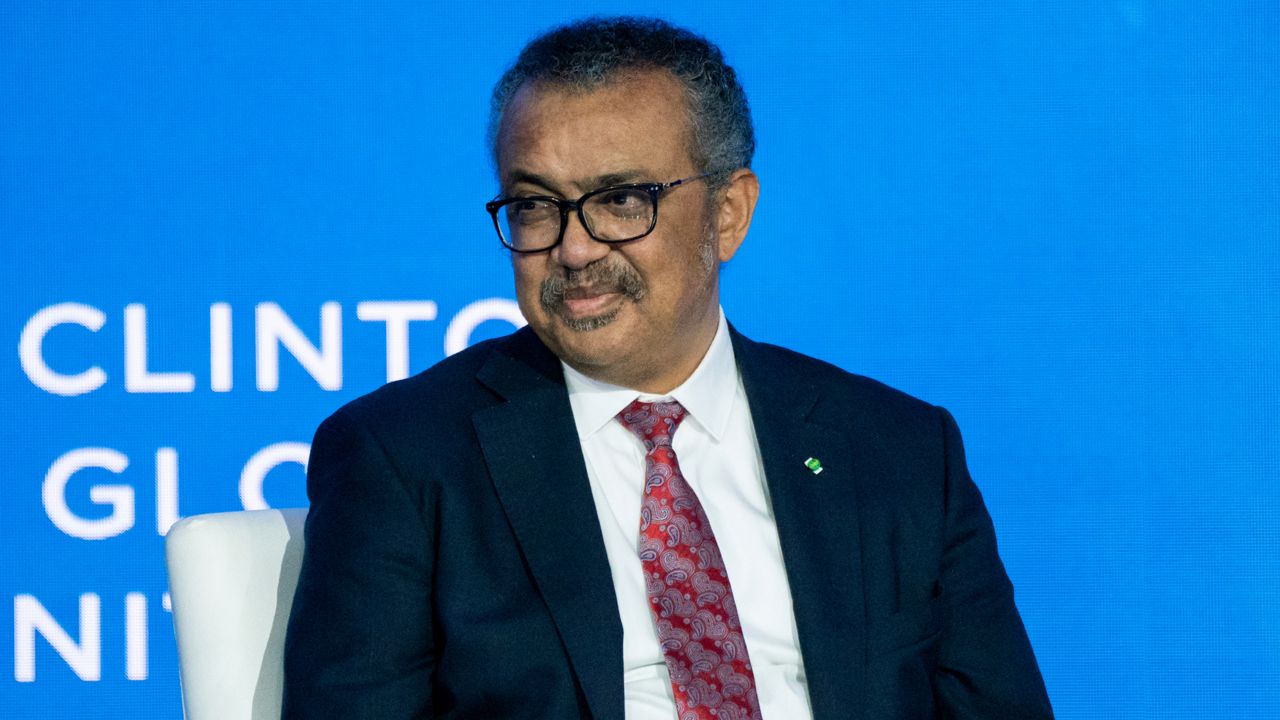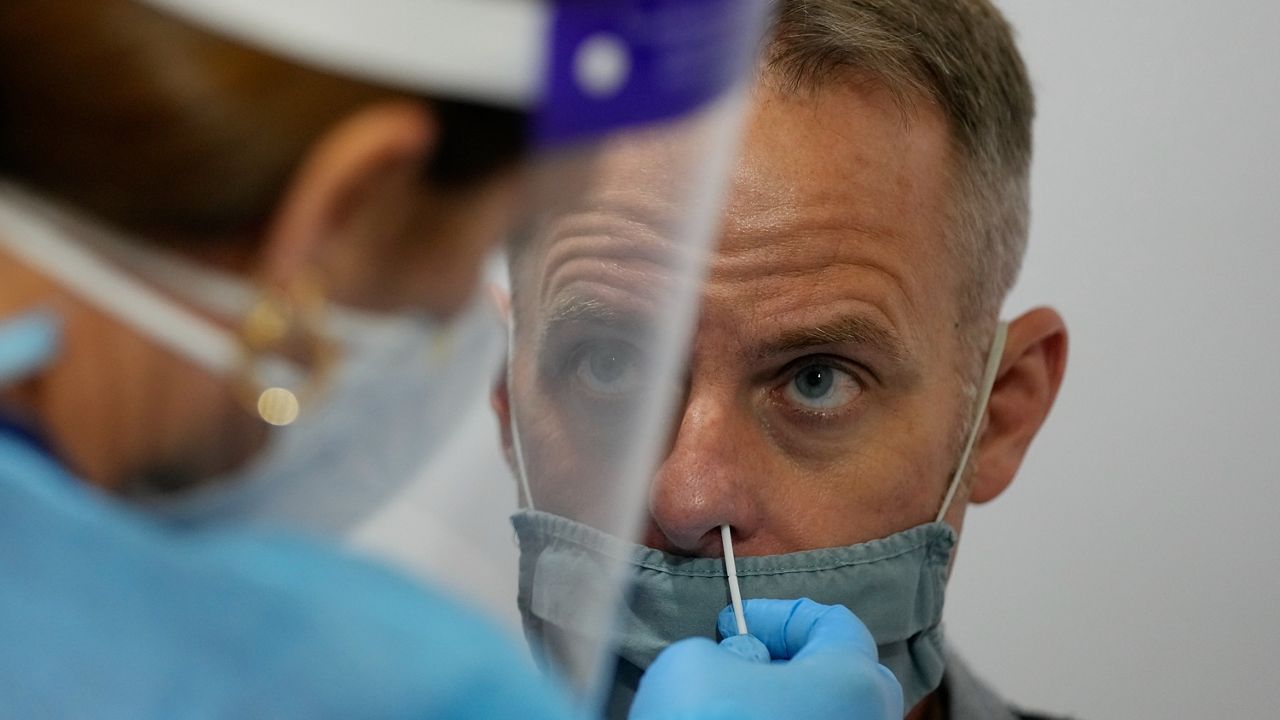LOUISVILLE, Ky. — Why do some people have lingering symptoms of COVID-19 while others don’t? If you’ve had COVID-19, what are its long-term effects?
The UofL Post COVID-19 Research Clinic is asking the same questions and more. To gain insight, it’s doing a study with people who have had the disease.
What You Need To Know
- UofL Post COVID-19 Research Clinic is studying the short- and long-term effects of COVID-19
- Participants 18 and over who have previously had COVID-19 are having their health examined every three to six months over a year period
- There are a variety of physical assessments, such checking vitals, strength, vision, cardiac and pulmonary health, etc.
- Participants are still needed, specifically those who were hospitalized with COVID-19
“Just really excited to be able to help the medical community, the Louisville community and to help us all understand more about the post-COVID symptoms,” said Rebekah Lamb while getting blood drawn at UofL Post COVID-19 Research Clinic Friday.
Lamb is one of 31 active participants who previously had COVID-19 and are participating in a study that is looking at the short- and long-term effects of the disease on people.

The 24-year-old, who is getting her master’s in public health at UofL and also works at the university’s Division of Infectious Diseases, had the COVID-19 last year in October, and she said she still has a lingering symptom.
“So there’s just various scents that I can’t smell, but then there are other things that seem as if my sense of smell has been heightened. So it’s very interesting,” Lamb told Spectrum News.
After having COVID-19, some people have no symptoms while others continue to have symptoms. Symptoms may also get worse or new symptoms can also develop.
“With this virus, literally nothing makes sense,” said Ruth Carrico, who is a professor at UofL’s Division of Infectious Diseases and one of the investigators of the study called UofL Post COVID-19 Research Clinic.
The study brings in participants like Lamb every three to six months for a year. They’ve had COVID-19 previously and may or may not still be experiencing symptoms.
Each time a person comes to the clinic, they are given a full exam that includes a variety of physical assessments, such as drawing blood, checking vitals, looking at a person’s strength, to name a few. There are also more complicated assessments, such as an ultrasound of the heart, lungs, and blood vessels and electrocardiograms.
“And pulmonary function studies, how well do people breathe, because you know so many people with COVID develop pneumonia,” Carrico said. “And then we are seeing an intense compromise of the respiratory tract in their ability to breathe, just like we are seeing a compromise of their cardiac function.”
Carrico said those issues lead to people having ongoing fatigue or just never being able to get back to doing what they physically could before.
“This microorganism we cannot see takes an incredible toll on the human body. So inside the body it’s ferocious, and we are trying the best to understand what that means, and why there are differences among different individuals,” Carrico said.
With every patient, UofL's Post COVID-19 Research Clinic is finding something new. Carrico said the clinic is already starting to submit its findings to the National Institutes of Health (NIH) since the medical community is looking at the long-term effects of COVID-19 and research like this will can help guide medical care and decisions.
“Why it’s great to be an American is you have a choice. Well it’s important that that choice be informed. So getting that information about why do some people develop disease? Why do some people not develop those long-term consequences are really important, not only for the care, but also for decision-making for related events such as vaccine acceptance,” Carrico said.
UofL’s Post COVID-19 Research Clinic currently has no end date for the study. The clinic is still looking for participants from Louisville and surrounding areas, specifically those who were hospitalized with COVID-19. The appointments and tests are free. The following is required to be eligible:
- Age 18 and over who have had COVID-19
- Confirmed by a diagnostic test
- Are eligible to participate in the study whether they have experienced long-term symptoms following infection or had no additional symptoms
- Vaccination status does not affect eligibility
All appointments and tests are free for the participants. The information from the study will remain confidential and will only be used for research purposes. Participants will also be alerted to any serious health issues that come up during the exams.
More information on how to participate can be found here or contact the Post COVID-19 Research Clinic at 502-852-8680 or email covclinic@louisville.edu.








